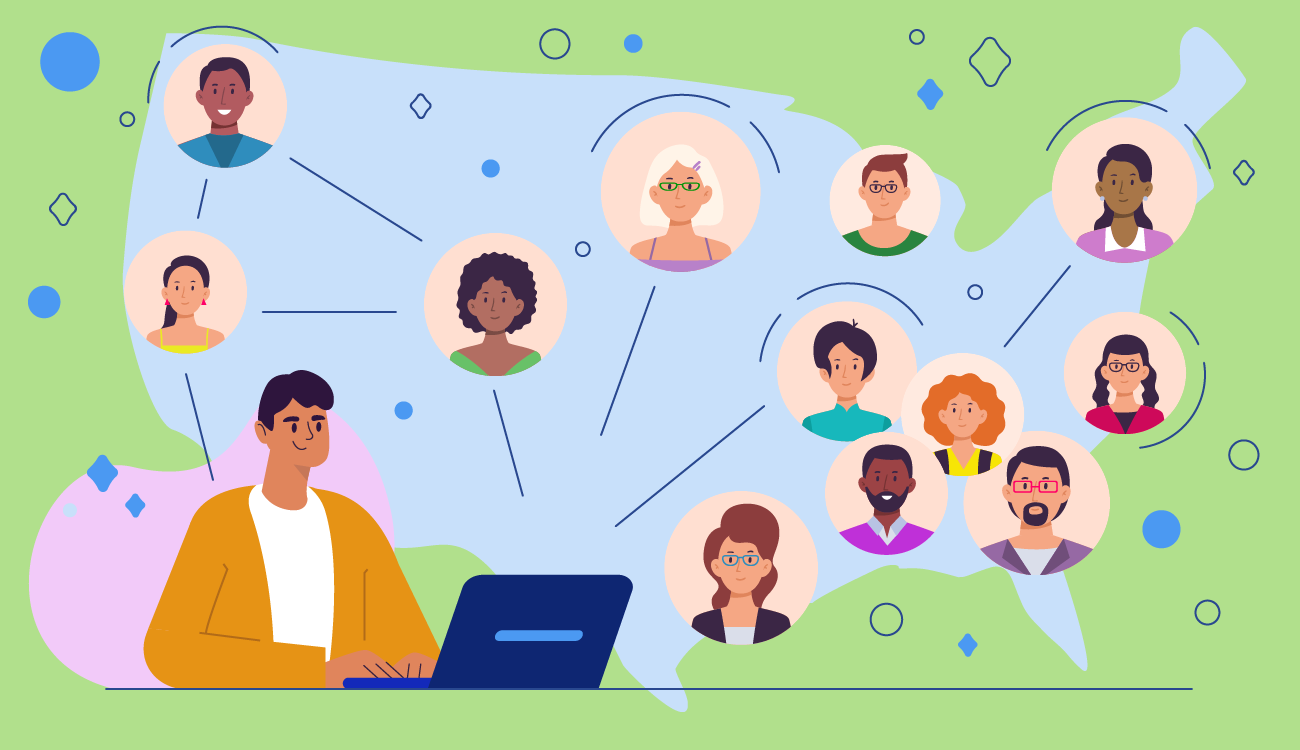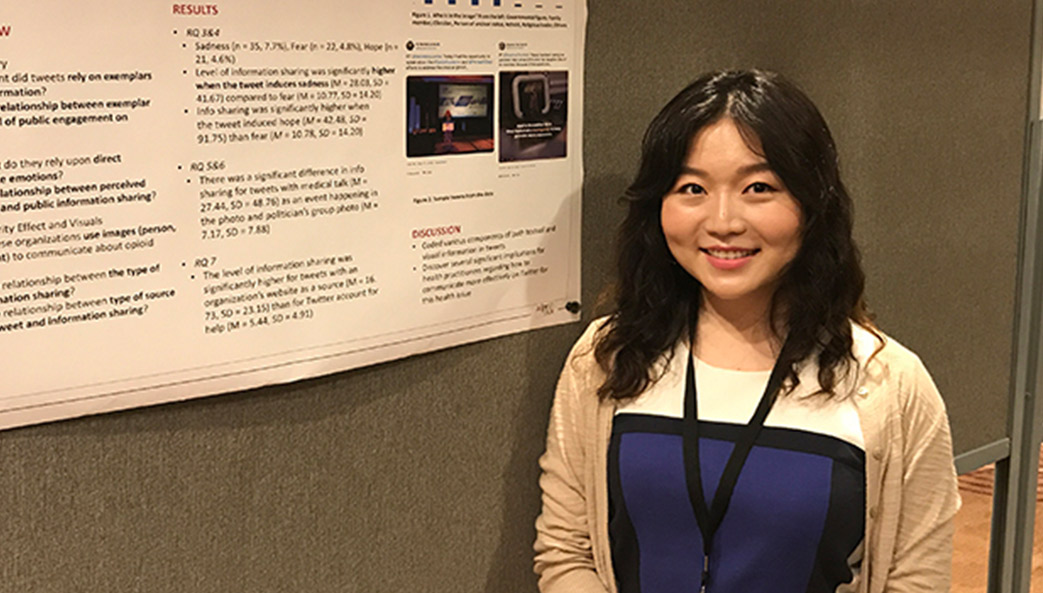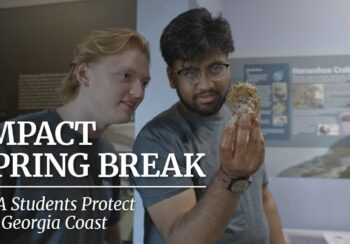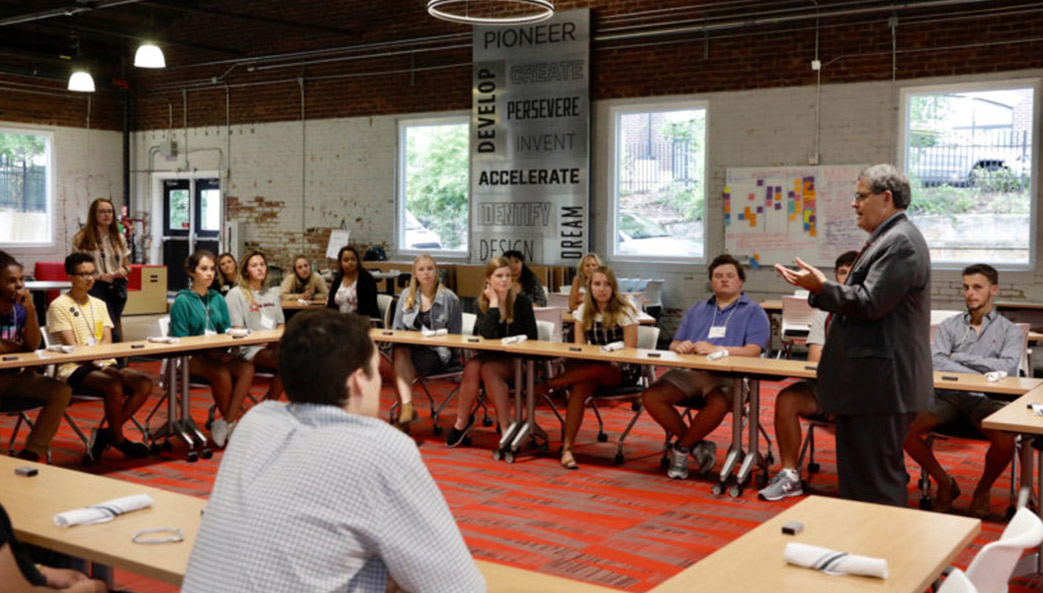Shady Kuster applied to several Research Experiences for Undergraduates programs, or REUs, before the COVID-19 pandemic closed college campuses and forced the cancellation of many such programs. But Kuster got lucky. She’s participating in one of the few REU programs still happening this summer—one that’s based at the University of Georgia and taking place solely online.
REUs, funded by the National Science Foundation, typically offer students hands-on research experience through campus-based programs dedicated to a variety of topics. Kuster is participating in an REU focused on genomics and computational biology that’s led by Jonathan Arnold. Additional REUs hosted online at UGA this summer include programs on nanotechnology and biomedicine, led by Leidong Mao, and biology education research, led by Peggy Brickman.
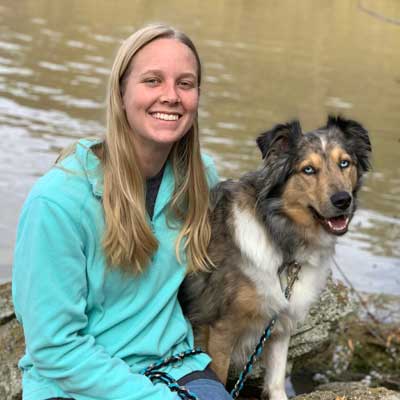
For Kuster, a student at Tarleton State University in Texas, the genomics and computational biology program offered a chance to gain research experience and narrow down her interests in genetics before applying to graduate schools.
“I heard back from other REUs that cancelled fairly early, and I was expecting all the others to follow suit,” said Kuster, a senior majoring in biomedical science. “Given the circumstances, I’m very thankful that the UGA program is still happening.”
Twenty-seven students from a variety of states—including California, Missouri, Nebraska, New York, North Carolina, Oregon and Texas—are participating in UGA’s REUs, though they’ll never actually set foot in Georgia. The shift to an online format meant that some of his students had to learn new skills, according to Arnold.
“They’re working on a variety of projects, but for some it’s considerably outside of their comfort zone. They’re all doing bioinformatics and computational biology—things that can be done remotely,” said Arnold, professor of genetics in the Franklin College of Arts and Sciences. “They’re still working in a lab, but it’s a computational lab.”
The students are working with faculty mentors on a variety of projects. Olivia Asher, for example, is working with Arnold on a project examining mutually beneficial plant/fungi collaborations and the circumstances that can change those relationships.
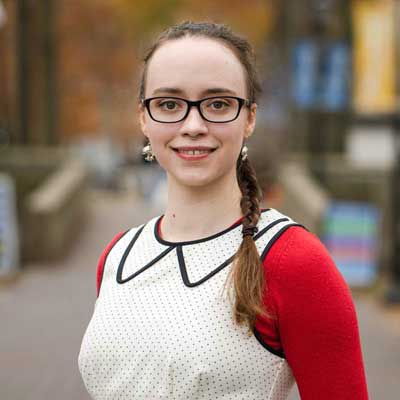
“Dr. Arnold and I are working to create a mathematical model to describe the experimental results from studies on the interactions of plants and fungi and make predictions about how they would function in more complex systems,” said Asher, a senior majoring in biology at Lehman College in the City University of New York.
In order to tackle this project, Asher had to learn how to create and test mathematical models.
“At first, I was intimidated by this process, as I never considered myself a very mathematically inclined person,” she said. “I now feel much more confident in my math skills.”
Kuster is working with Liang Liu, associate professor of statistics, on a project investigating the virulence factors that allow COVID-19 to cross species boundaries. She’s taking software written by Liu and adapting it to handle a much larger collection of genomes than it was designed for—a task she found daunting at first.
“Dr. Liu’s program incorporates a lot of mathematical models that I’ve had to learn about. I spent the first three or four weeks of the program learning those models and how to apply them in code,” she said. “I wanted to develop my computer skills further, and this program is giving me an opportunity to do that.”
Kuster’s work on finding virulence genes in COVID-19 is funded through an NSF RAPID grant—or grant for rapid response research—that was awarded to Arnold. Erin Dolan, professor of biochemistry and molecular biology, is conducting a RAPID-funded study examining the REU programs, like Arnold’s, that have embraced distance learning.
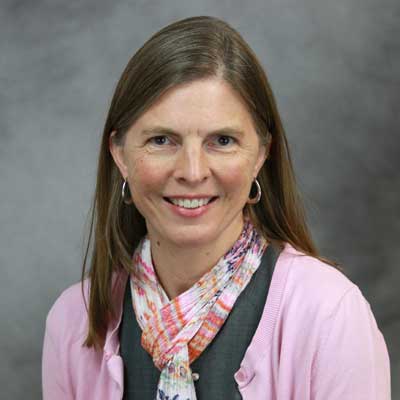
“The most important thing is that they help students achieve what they would normally achieve in a research experience, which is exploring research as a career path and developing the skills and disposition for a research-related career,” said Dolan, Georgia Athletic Association Professor of Innovative Science Education. “It’s important that they develop confidence in their ability to be successful and a sense of belonging in the research community, as well as gain an understanding of the value of research.”
Dolan is working remotely with two UGA students—undergraduate Olivia Erickson and graduate student Rebecca Cole—to survey roughly 250 students in about 20 life sciences programs taking place across the country. In addition to pre- and post-surveys, they’re conducting focus groups with students in programs at their midpoint (REUs typically last eight to 10 weeks). One of the biggest challenges, they’ve found, is recreating the cohort experience, but students are taking a lot of initiative, setting up virtual coffee hours or online game nights. Another challenge is structuring time, but overall, things are going well, Dolan said.
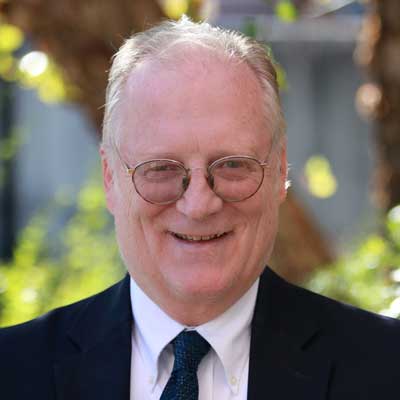
“Everyone is pleasantly surprised,” she said. “I think everyone was hesitant that it wasn’t going to be the same—and it certainly isn’t the same—but I think people are happy to be doing something, and they’re able to make research progress that they didn’t anticipate being able to make, given the circumstances.”
Though they’ve lost the in-person experience, the UGA students are interacting for the first time with peers at other REU programs in locations like North Dakota, Chicago and Boston, according to Arnold.
“The reach of the program is diminished locally, because we used to all do things together, but it’s expanded nationally because we have these other partnerships with other institutions,” he said. “That’s been an enriching experience.”
Kuster said she finds it inspiring to interact with other people doing research.
“It’s motiving to know you’re not in this alone and to be part of a community that has similar interests and goals,” she said. “It’s a different kind of community, but definitely still a community.”



